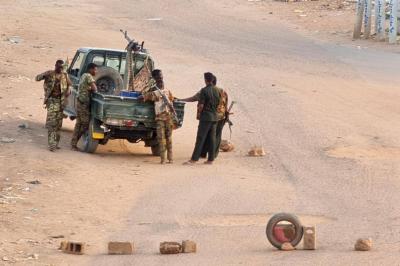Recently, there has been repeated commentary from some officials of the "Rapid Support Forces" in Sudan, or those affiliated with or sympathetic to them, stating that their leader, Mohamed Hamdan Dagalo (Hemedti), no longer has complete control over them as he did in the past. While this statement was made in an attempt to absolve him of responsibility for the widespread violations committed by his forces, particularly after their expansion in the Al-Jazeera state, it raises a significant question about whether these forces have indeed gone out of control, with some groups fighting purely for looting and killing without cause other than revenge or pleasure.
Hemedti's prolonged absence from the public eye for nearly four months and his failure to condemn the recent repeated violations in Al-Jazeera, including the horrific massacre in the village of "Wad Al-Nour" that resulted in over 100 deaths this month, raises questions again regarding his status and fate, and increases ambiguity about who controls the leadership of the "Rapid Support Forces." Either the man is no longer present in the scene, leading to a loss of the control he had maintained through his presence and popularity among his forces, or, due to the influx of many new recruits from the African diaspora and mercenaries lured by financial incentives—many of whom have come solely for looting—leadership control of the "Rapid Support Forces" has weakened or been lost.
In any case, this situation creates significant issues and exacerbates the risk of further violations and massacres. Furthermore, it raises questions about the feasibility of any agreements that may be reached if negotiations in Jeddah are resumed, which several international parties are pressing to restart.
In a recent interview, one of Hemedti's advisers, attacking army chief General Abdel Fattah al-Burhan, claimed that he cannot stop the war and enforce a return to negotiations with the Islamists, whereas the leader of the "Rapid Support Forces" could halt the war immediately with a voice recording directed at his troops. The question here is: if the man is capable of that with just a voice recording, why hasn’t he stepped forward to stop the killings, rapes, and massacres against civilians? How is he able to stop the war but not able to put an end to the widespread violations committed by his forces in full view of the world?
There are those who attempt to distort and obscure the facts, claiming at times that those involved in looting, killing, and violence are not members of the "Rapid Support Forces," but rather new arrivals to the group, or criminals disguised as them exploiting the chaotic security situation to commit their crimes. Others assert that these acts are carried out by remnants of the previous regime, who wear the "Rapid Support" uniform to tarnish its image in front of the citizens and the world.
These arguments crumble when asked about the individuals observed by many, witnessed by the entire world during the war stages, dressed in "Rapid Support Forces" uniforms and using their combat vehicles to kill, loot, and burn properties, while documenting everything themselves in videos that they broadcast proudly.
The reality is that these violations are part and parcel of the "Rapid Support Forces" and have marked its history since its inception until today. Massacres and abuses have been committed in Darfur, Al-Jazeera, and Khartoum, witnessed by citizens who have suffered immensely, condemned and documented by the international community, making it difficult to obscure or justify them with flimsy excuses aimed at evading responsibility.
Given that these violations appear systematic, they invalidate claims that they are merely "anomalies" occurring due to the chaos resulting from war. How can this be the case when hardly a day goes by without fighters from the "Rapid Support Forces" appearing in widely circulated social media videos documenting some form of violation, whether it be intentional shelling of civilian neighborhoods, execution of prisoners, boasting about looted goods transported from Khartoum or Al-Jazeera, or the refusal to vacate homes they have occupied after forcing their owners to leave, or more gruesome scenes of killings and dragging bodies or burying people alive, as seen with the members of the Masalit tribe in Darfur?
The position and future of the "Rapid Support Forces" have always been contentious questions even before the outbreak of war, and today they become even more complicated as the scope of violations expands alongside public outrage and recent developments concerning whether its leadership has indeed lost control over it, especially with the confusion stirred by Hemedti's frequent "disappearance."




